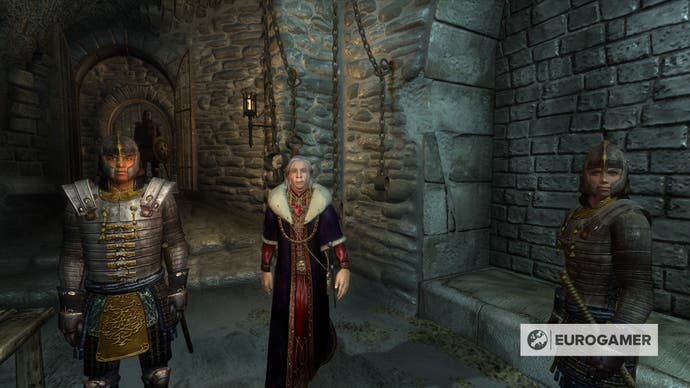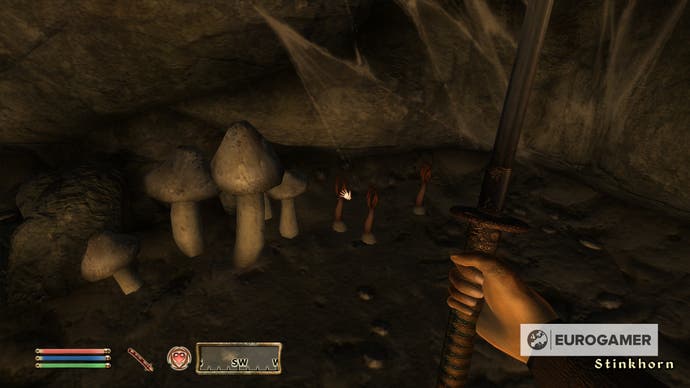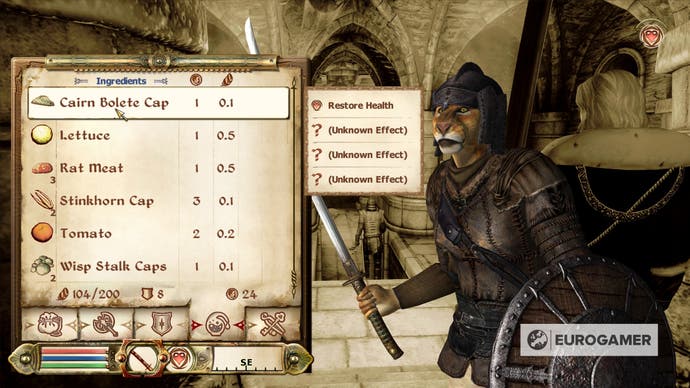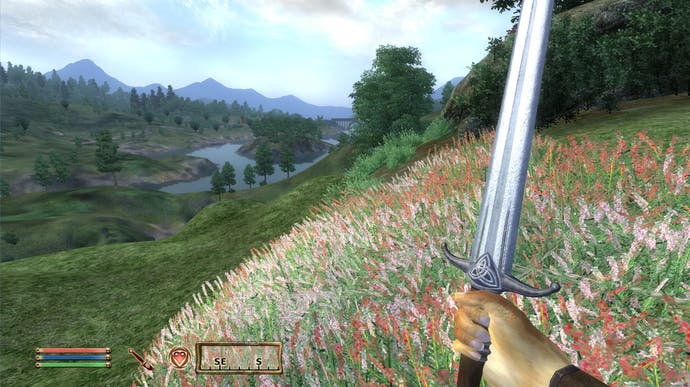Getting an unexpected education in Oblivion
Worts and all.
It never occurred to me that the herbs might be real. Why would it? I was used to picking things like Ghost Mushrooms and Dreamfoil, and I'm pretty sure they're not real. And so to me, walking around the wilderness of The Elder Scrolls 4: Oblivion - what a lovely game that was, and what a lot of walking I did, like some kind of possessed rambler in plate mail - there was nothing particularly notable about ripping handfuls of St. Jahn's Wort and Bergamot out of the ground while I explored. Just another made-up herb, I thought. And who came up with the name St. Jahn's Wort anyway? It sounds disgusting. What is it, shavings?
Chokeberry, Cairn Bolete, Elf Cup, Lady's Smock, Monkshood: they all sounded made-up to me. I mean Elf's Cup for Christ's sake! (It'd be a good cup to toast with, though, wouldn't it? "Here's to your good elf!" and that.) They're all straight from the pages of fantasy, surely?
Then one day everything changed. I was in a health store, don't hold that against me, when something caught my eye: a packet on a shelf claiming to be able to heighten my mood. St. John's Wort. I practically fainted into the Rescue Remedies. It's real?!

(OK, time to highlight the spelling discrepancy some of you will have spotted. The herb is St. Jahn's Wort in the game but St. John's Wort in real-life. Honestly, I only realised it while writing this piece. My mind must have been auto-correcting it all of these years. I don't know why they have different spellings and the internet isn't readily telling me. The most convincing explanation is that having a herb named after a religious figure from the real world, in a made-up world with different gods, would be a bit confusing, though the existence of this paragraph seems to suggest they've achieved the same end anyway.)
Did it mean- No! Were the other herbs in Oblivion real as well? I looked around. There was Bergamot, there was Arrowroot, there was Wormwood. My god. And, hang on, Elf Cup is a real mushroom in the real world? It blew my mind. I know it all sounds a bit ridiculous now. Loads of other games do this and probably did back then. But this was my discovery moment, the moment my eyes opened, so the next time I went into Oblivion I was like a saucer-eyed child, walking through the wilderness as if for the first time, studying what I found. Oh so that's what it looks like, hmm, hmm. Oh so that's what it does, hmm, hmm.

How odd that I should start to care more about things outside after playing games inside, but that's what happened. Games made plants more interesting. No longer were they things I had no internal reference point for. Now my memory could reach for them and pull out a load of related stories and adventures alongside them, making them doubly interesting to me.
It's cool, especially when you think about how many of us walk around with that kind of knowledge nestled in our heads, probably completely unaware it's there. We need to be really careful though. Games aren't plant-picking simulators. There's a lot of made-up stuff in them too (I couldn't find Ogre's Teeth in the health food shop for the life of me). We don't want to look silly when writing a book and accidentally using a dye recipe from Zelda instead of a dye recipe from real life, do we?

Jokes aside: just because we pick plants in games doesn't mean we know anything about harvesting them or using them in real life, so don't. Seriously, don't do it. Many plants and particularly mushrooms can be lethally poisonous so don't be a wally and eat them, or even touch them, not without expert guidance. And no, before you ask, a game does not constitute 'expert guidance'.
It's nice to think of games as being complementary to real life. They're not often billed that way. Games which celebrate the places we can't easily get to, or celebrate them in a way which helps us see them in a way we haven't before. It's a wholesome thought to leave you with. I've a cup of Bergamot tea to drink.


